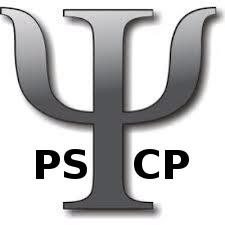Irish Analytical Psychology Association (IAPA)
What is analytical psychology?
Analytical or Jungian psychology is based on the ideas of Carl Gustav Jung, (1875-1961). Son of a Swiss pastor, Jung, a psychiatrist, became a disciple of Freud in 1906. After an initial close working relationship, (during which Jung was elected President of the International Psychoanalytic Association), the friendship ended acrimoniously in 1913 when Jung developed several ideas which departed from Freud's views. While there is some overlap in areas of common interest, – the concept of the Unconscious, the complexes, and much of the early developmental approach, Jung's emphasis was different.
For example Jung saw the unconscious as complementary to and communicating with consciousness, rather than solely a repository of repressed experience. Equally he was less interested in the causes of neurosis than in its meaning and significance within the framework of the personality. These ideas led to his outlining a model of Personality Types (where Jung introduced the terms Introvert and Extrovert), which accounted for the variety of attitudes found within the range of 'normal' personality. His interest in the transformation of the personality and his belief in the in-built tendency of the psyche to strive towards wholeness, (something Jung felt emerged more in the second half of life), led to his developing the concept of Individuation.
As well as the Personal Unconscious, another area which interested Jung was that of the Collective Unconscious, which he regarded as the repository of people's psychic heritage and possibilities. These ideas led him to a life-long study of the images and symbols found in humanity's myths and religious beliefs.
A comparative study of these led Jung to the theory of Archetypes, innate images that operate as transformers of psychic energy which has its source in the instincts. Seeking for the historical roots of his Analytical Psychology, in the final decades of his life Jung was led to the study of Alchemical texts.
Such theoretical researches went hand in hand with a busy analytical practice, which led Jung and his followers to several innovations in psychotherapy – from new approaches to Dream Interpretation, and the use of Active Imagination, to the current use of Sand-Play therapy and the dramatic enactment of Fairytales.
Jungian Psychology in the Irish ContextThe Irish Analytical Psychology Association was founded in 1996 to represent and promote the understanding and development of Analytical Psychology in Ireland. Two years later the I.A.P.A. became affiliated with the International Association of Analytical Psychology (I.A.A.P.), Zurick, where its status is that of a Developing Group. It is hoped that when there is a sufficient number of Analysts the I.A.P.A. will become a fully accredited training institute.
In 2000 the association became a member of the Irish Council for Psychotherapy, as representing Analytical Psychology professionally in Ireland, under the umbrella of the Psychoanalytic Section.
The I.A.P.A. has two categories within the list of Full Members whom it recognises as competent to practise in their profession: I.A.A.P. Analyst Members and Analytical Psychotherapist Members.
Contact Address:
Jean Fitzgerald
Mount Ambrose,
St. Margaret's
Swords,
Co. Dublin.
Tel: . 087 249 2625
Email
http://www.jungireland.com

